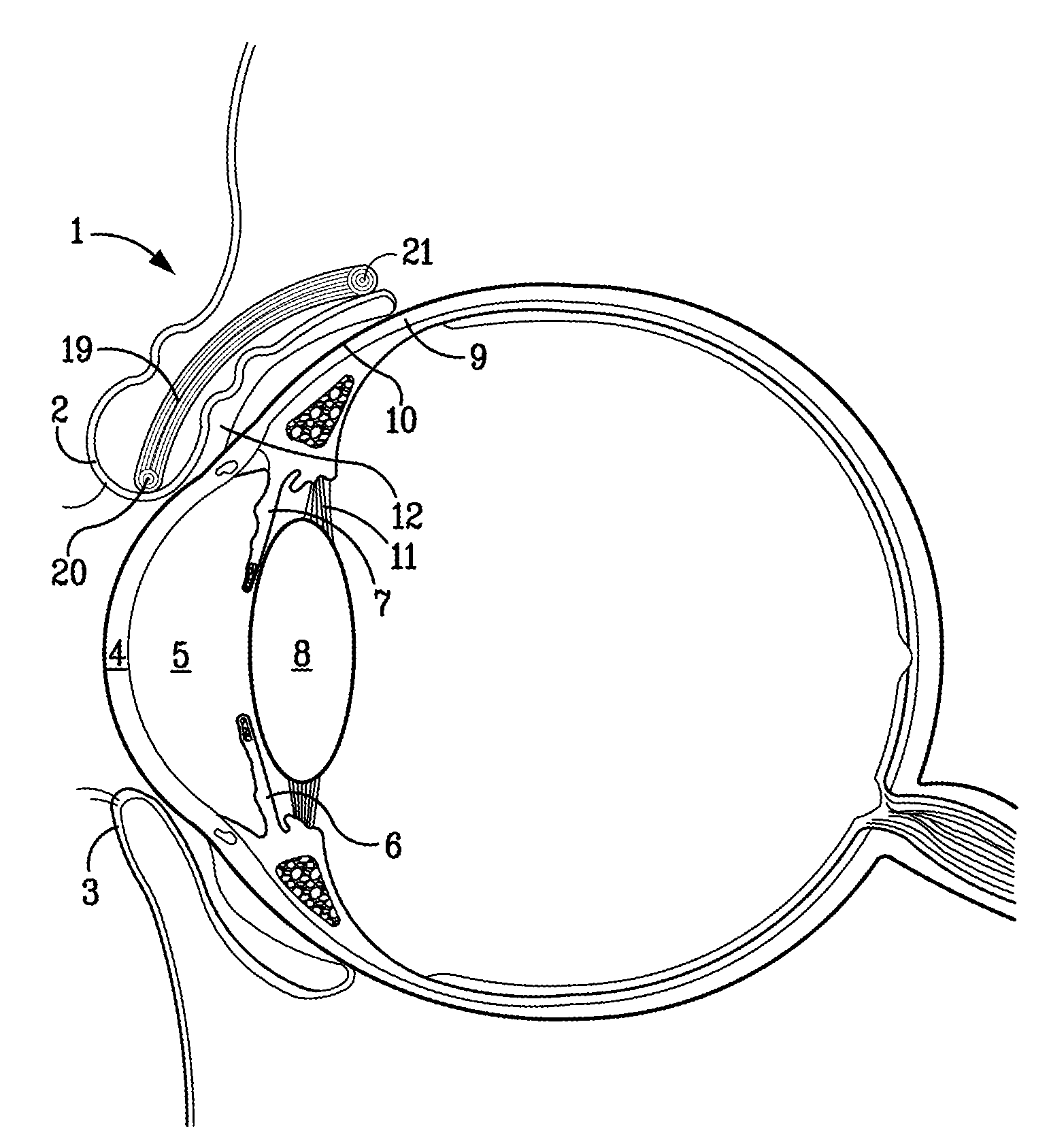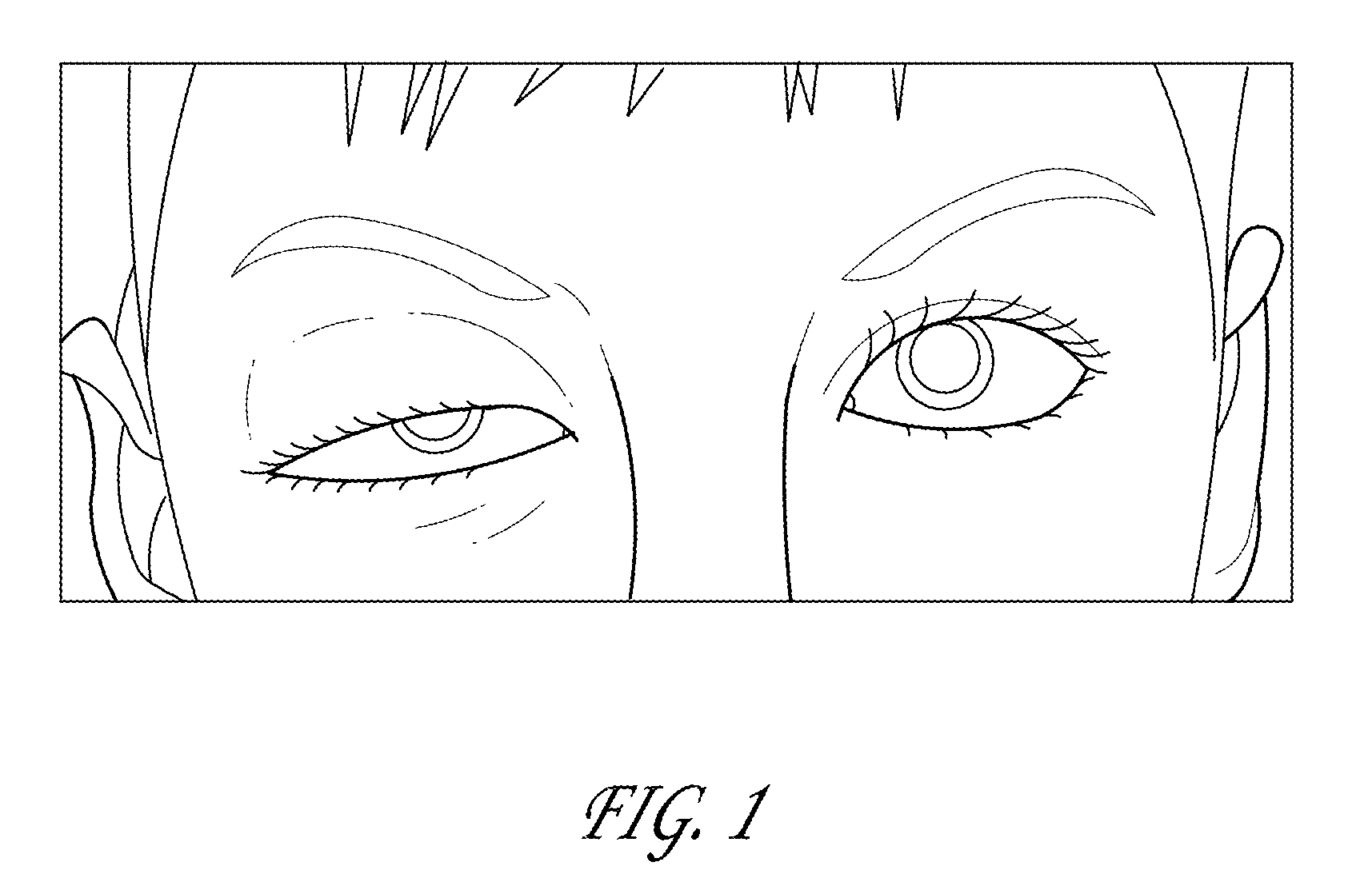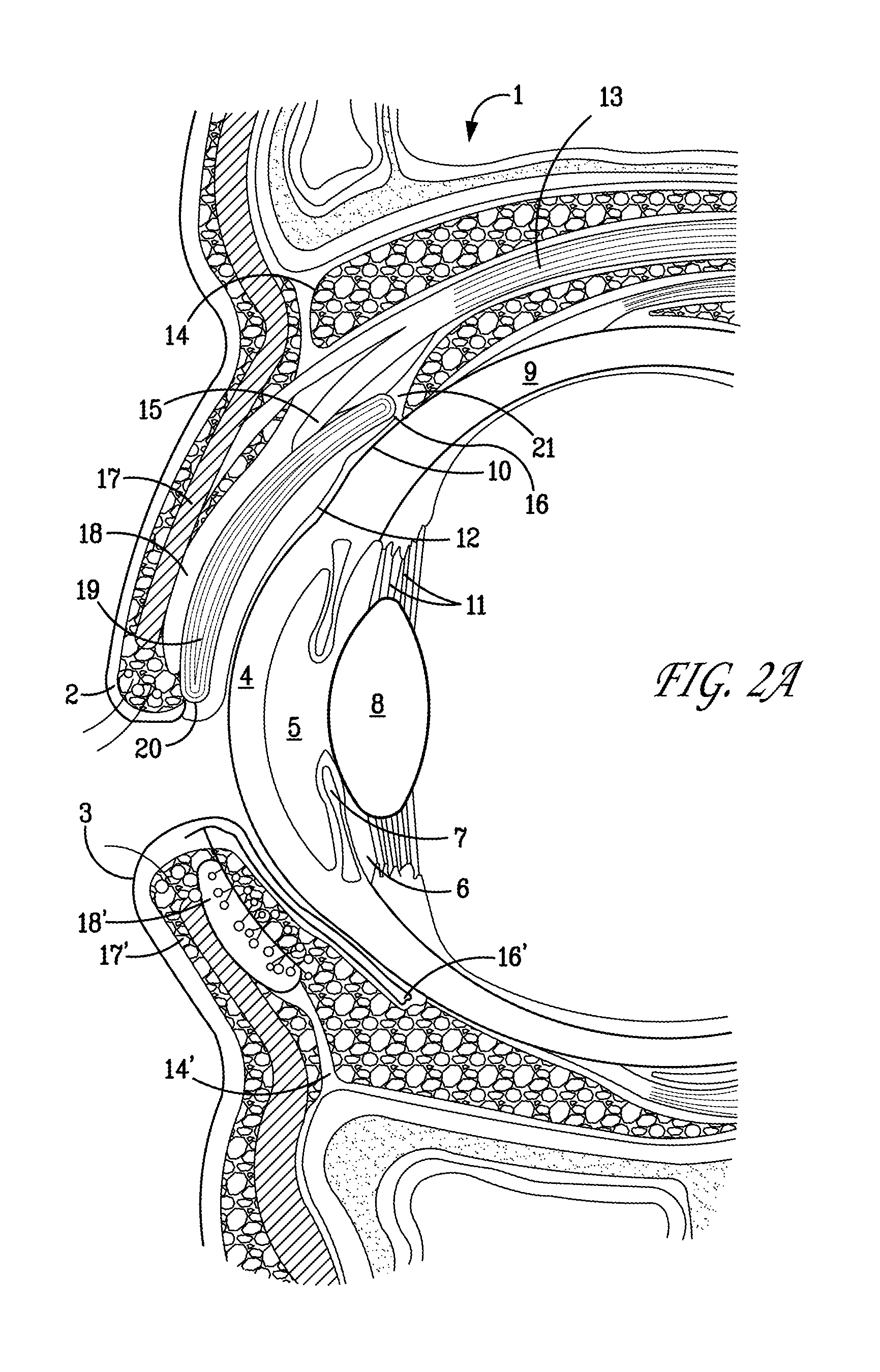Surgical correction of ptosis by polymeric artificial muscles
a polymer artificial muscle and eyelid technology, applied in the field of eyelid function restoration and ptosis correction, can solve the problems of cosmetic failure, non-natural function, etc., and achieve the effect of reliable operation and easy surgical implantability
- Summary
- Abstract
- Description
- Claims
- Application Information
AI Technical Summary
Benefits of technology
Problems solved by technology
Method used
Image
Examples
Embodiment Construction
[0019]The current disclosure provides apparatus and methods for correcting ptosis. FIG. 1 shows a patient suffering from ptosis in one eye. As seen in FIG. 1, a typical ptosis manifests itself in the form of upper eyelid droop under normal conditions. Typically, a surgical approach can be implemented to correct the droopy eyelid. According to the present disclosure, an artificial muscle can be surgically implanted into the eyelid. The implant can then be biased in either an open or closed position with application of different biasing means. The biasing means may take the form of different chemical solutions, for example, in the form of eyedrops having different chemical properties such as different acidities.
[0020]As will be described in greater detail below, according to one embodiment of the present invention, biocompatible fibrous contractile and expansive ionic polymeric artificial muscles can be surgically implanted and sutured under the superior palpebral conjunctiva and sutu...
PUM
 Login to View More
Login to View More Abstract
Description
Claims
Application Information
 Login to View More
Login to View More - R&D
- Intellectual Property
- Life Sciences
- Materials
- Tech Scout
- Unparalleled Data Quality
- Higher Quality Content
- 60% Fewer Hallucinations
Browse by: Latest US Patents, China's latest patents, Technical Efficacy Thesaurus, Application Domain, Technology Topic, Popular Technical Reports.
© 2025 PatSnap. All rights reserved.Legal|Privacy policy|Modern Slavery Act Transparency Statement|Sitemap|About US| Contact US: help@patsnap.com



